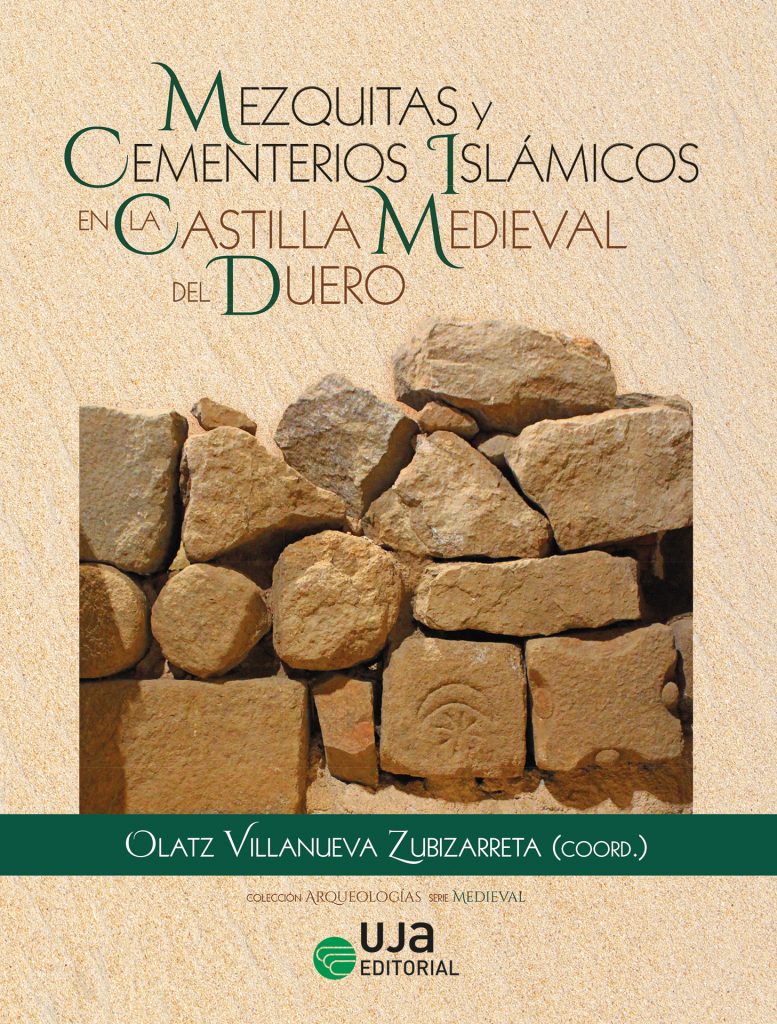ESTUDIO DE LOS ESPACIOS RITUALES MUDÉJARES EN LA CASTILLA MEDIEVAL: MEZQUITAS Y CEMENTERIOS ISLÁMICOS EN UNA SOCIEDAD CRISTIANA
Referencia: Proyectos I + D Excelencia del Ministerio de Ciencia e Innovación (HAR2017 - 83004 - P)
IPs: Olatz Villanueva Zubizarreta y Mª Isabel del Val Valdivieso (Universidad de Valladolid)
Vigencia: 2018 - 2021
El Proyecto
El estudio histórico y patrimonial de dos de las expresiones más notables de la identidad religiosa de los mudéjares castellanos, como son sus mezquitas y sus cementerios, será el objeto de investigación de este proyecto. A lo largo de estos últimos años, las investigaciones de archivo, las excavaciones de archivo, las excavaciones arqueológicas y el análisis patrimonial han arrojado información sustancial sobre ambos elementos, que sin embargo a día de hoy no han sido abordados de forma conjunta y decidida. Sin duda, su estudio constituye un medio de análisis excepcional para profundizar en el conocimiento de la espiritualidad islámica castellana, pero también para conocer la singularidad de estos musulmanes inmigrados (no conquistados) en el panorama del mudejarismo peninsular, al ponerlos en relación con otras realidades mudéjares, como pueden ser la aragonesa, andaluza, extremeña o portuguesa.
El Islam dominado, permitido y vivido en minoría (mudéjar) se ha convertido en las últimas décadas en un objeto de estudio específico
después de que una tradición historiográfica (relativamente reciente) llamara la atención sobre esta expresión socio-religiosa de la Edad Media hispana. En este caso, nos proponemos analizar una de esas realidades en particular, la del Islam vivido en minoría en las tierras septentrionales de la Corona de Castilla por constituir un escenario y un ejemplo excepcionales para estudiar lo que para muchos investigadores pasó por ser un episodio residual y casi invisible del mudejarismo peninsular.
El interés del tema a investigar resulta de total actualidad,
tanto para el progreso del conocimiento histórico-arqueológico y artístico, como para la documentación, protección, gestión y difusión del Patrimonio castellano por parte de las instituciones con competencias en la materia. El grupo de investigación conformado para la ocasión garantiza la consecución de los fines propuestos gracias a su configuración multidisciplinar (necesaria para abordar con garantías el tema que proponemos) y a su dilatada experiencia de trabajo en común en la investigación histórica, en general, y en el estudio del mudejarismo castellano, en particular.
Islam, insofar as it was subdued, tolerated and lived as a minority, has become the subject of detailed analysis in recent decades, after a (fairly recent) historiographical tradition has focused on this social and religious expression in Spain’s Middle Ages. Our interest lies now in the analysis of one particular expression: the Islam lived as a minority in the northern area of the Crown of Castile, since it is an exceptional setting and an outstanding example to study what many researchers have taken as a residual, almost invisible episode in Spain’s Mudejarism.
The goal of our project will be the study of the history and cultural heritage
of two prominent manifestations of the religious identity of Castile’s mudéjares- their mosques and cemeteries-. In recent times, research carried out in archives, arqueological excavations and the analysis of the historical heritage have provided us with abundant information on both mosques and cemeteries; yet, to date, they have not been studied in a wide-ranging and definite manner. Their study is undoubtedly an opportunity to make progress in the knowledge of Islamic spirituality in Castile, but also to perceive the singularity of these immigrant (not conquered) Muslims in the global scene of Spain’s mudejar culture, when relating them to other mudejar groups, such as those present in Aragón, Andalucía, Extremadura or Portugal.
The research topic is a timely issue, both regarding the progress of historical,
archaeological and artistic knowledge and the identification, protection, management and dissemination of Castile’s cultural heritage by the appropriate authorities. The research group convened for the project warrants the achievement of the proposed goals thanks to its multidisciplinary character (a must in order to deal successfully with the research topic) and to its extensive work experience in historical research in general and in the study of Castile’s Mudejarism in particular.

